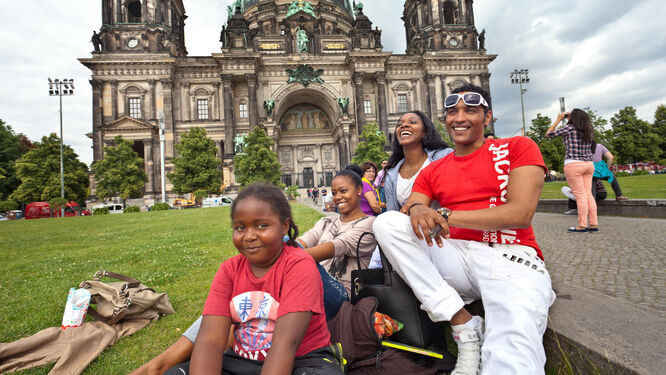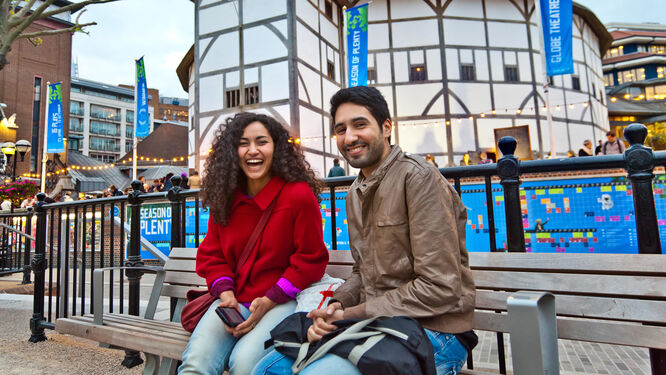Encountering Racism in Europe
By Rick Steves
People who are not of European descent may wonder how they'll be treated abroad. I've collected the following advice from a wide range of people of color who have lived or traveled extensively in Europe. By and large, the travelers I heard from felt safe and comfortable in Europe. But they did report some issues.
For context, it helps to be mindful of the cultural and historical differences between Europe and the US. On the whole, Europe is more homogenous than the US, with non-white diversity coming mainly in the form of transplants from former colonies or more recent immigrants. Some parts of Europe are home to many people of color, often part of immigrant communities, which face their own challenges; other areas are as white as it gets (and can be pretty clueless when it comes to race).
In general, though, your Americanness will probably be more notable to the Europeans you meet than the color of your skin. (Most Europeans can spot Americans a mile away.) Any stereotypes Europeans might have about your race are likely informed by American culture. For example, Black travelers have told me that they sensed a new respect and appreciation in Europe during the Obama presidency. But this can cut both ways: A Black woman who taught school in Europe told of a student who freely used language he'd heard in hip-hop music, not realizing how offensive some of it can be.
Travelers of color and mixed-race couples report that their most common source of discomfort in Europe is being stared at. While impolite, these long glances are typically rooted not in disapproval or hostility, but in what one traveler termed "benign curiosity." Put simply, for some Europeans, you're just not who they're used to seeing. Another traveler suggested that this isn't racism so much as "rarism" — Europeans reacting to you as a novelty. Several Black travelers described a more invasive variation on this: Europeans wanting to touch their hair. (Um, no.)

By American standards, Europeans can be opinionated and blunt. What's considered polite conversation in Europe can be shockingly different from our own unwritten rules. Some travelers note they find this weirdly refreshing ("at least it's out in the open") and appreciate the opportunity to do a little educating. Most Europeans are as interested in learning about you as you are in learning about them.
Some travelers of color report feeling more comfortable in cosmopolitan areas and multicultural cities (London, Paris, Amsterdam, Berlin, etc.) than in smaller towns or provincial areas, where there can be more staring or inappropriate comments. On the other hand, in certain areas — for example, cities in southern France where immigration has become an issue — you may feel caught up in someone else's racial tensions. Across Europe, authorities are under pressure to keep out undocumented arrivals — and often that means targeting non-white travelers at border crossings and airport security. Be prepared for the possibility of being closely scrutinized before continuing on your way.
If you're wondering about a specific destination, ask fellow travelers about their experiences. Follow travel writers or bloggers who match your background and travel style. Some well-established sites include Oneika The Traveller and Latinas Who Travel.
Will you encounter unfriendliness in your travels? Definitely — and racism may be behind some of it. But several travelers of color noted the importance of not always attributing grumpiness to racism. One told me: "I think we're more likely to interpret bad behavior from non-Americans as being racist because of our history with white Americans. Often Europeans' impatience is just because we're American and we're clueless about other people's cultures."

